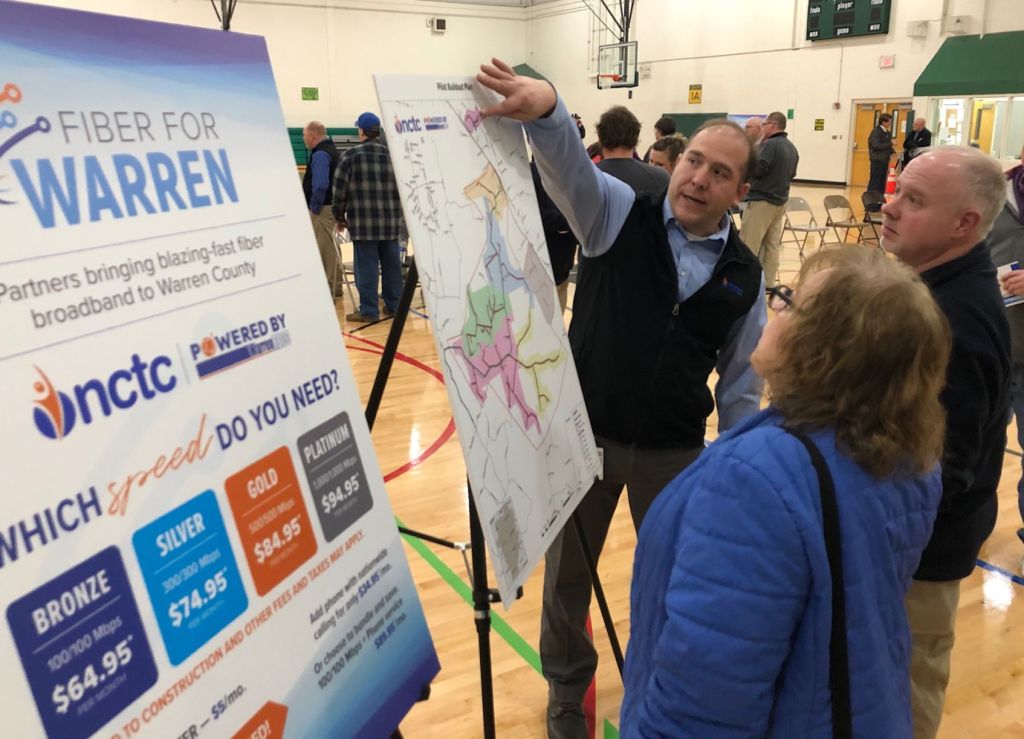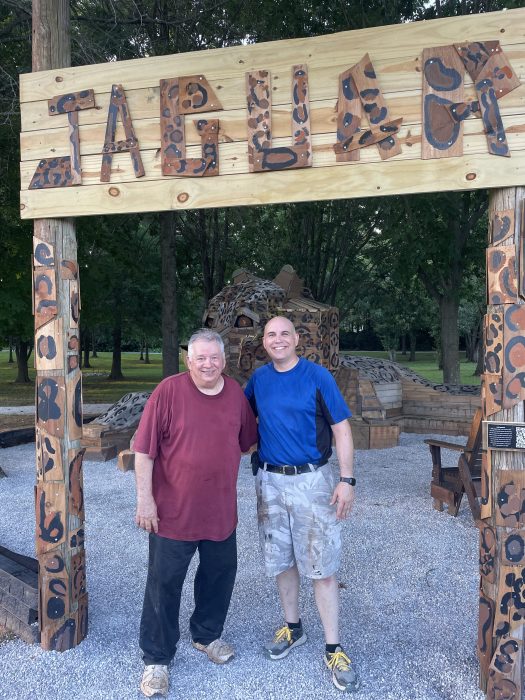County to help WRECC roll out more fiber for internet access
Published 8:00 pm Saturday, October 31, 2020

- Clint Carter, director of technology for Lafayette, Tenn.-based North Central Telephone Cooperative, explains the planned rollout of NCTC’s broadband internet service during a January meeting at Phil Moore Park.
Almost a year after Warren Rural Electric Cooperative Corp. and Tennessee-based North Central Telephone Cooperative announced a partnership to bring broadband internet access to underserved areas in Warren County’s Alvaton and Boyce communities, Warren Fiscal Court is pitching in to help broaden that partnership’s pilot project.
Fiscal court, using funds from the federal Coronavirus Aid, Relief and Economic Security Act, voted Wednesday to allocate $300,000 toward expanding the initiative to bring fiber optic cable and high-speed internet to rural parts of the county.
When they announced their broadband partnership in October 2019, WRECC and NCTC planned a pilot project that would reach about 800 homes and could be expanded if enough residents signed up for the service.
At the fiscal court meeting, WRECC Director of Communication and Public Relations Kim Phelps said about half the residents in the original pilot area had signed up for the service, prompting WRECC to look at expanding it.
“This funding will allow us to expand to about 350 more WRECC members,” Phelps said.
Butch Massey, WRECC’s vice president of engineering and operations, explained in a letter how the project to bring broadband to rural areas ties in with the CARES Act funding designed to help people and businesses recover from the pandemic’s economic devastation.
“The COVID-19 pandemic and the resulting work-from-home and nontraditional instruction requirements have only deepened the digital divide that affects our rural areas,” Massey wrote. “Now more than ever, high-speed internet access is a crucial resource for families and businesses.”
Warren County Judge-Executive Mike Buchanon said he regularly hears from county residents hungry for better internet access.
“About 30 percent of the people in the county don’t have access to high-speed internet,” Buchanon said. “The need for it has been accentuated by COVID-19. I’m getting calls, emails and texts about broadband all the time.”
Buchanon said this investment and the expansion of the WRECC-NCTC pilot project is “the first step in expanding (broadband) outside the pilot project.”
That project involves WRECC providing the fiber backbone and lateral lines that NCTC is then using to bring the internet service to homes.
NCTC, which is the internet service provider in Allen County, uses that fiber to deliver internet service in four speeds: 100-megabit-per-second, 300-megabit, 500-megabit and one-gigabit.
“While everyone else has been talking about rural broadband service, WRECC and NCTC have taken action,” Massey wrote in his letter to fiscal court. “We have brought our different strengths to the table and developed a pilot in southeast Warren County.”
Massey described the pilot project as “complete and performing well.” He said the $300,000 is needed to expand to another 350 homes in the same part of the county.
The funding will be used to offset the charges to each household for running the fiber to the home and to pay installation charges for putting the broadband equipment in homes.
“This work is planned to be accomplished this calendar year,” Massey wrote.
Buchanon is already looking beyond this expansion of the pilot project, saying: “I think what WRECC and NCTC are doing will be the ultimate answer to providing connectivity to every resident in the county, but it’s not going to happen overnight.
“It’s important for our future. People are moving to where there is access to broadband.”
Both Buchanon and WRECC’s Phelps said the growth of broadband access provided through the partnership depends on residents signing up for the service when it becomes available.
“Our moving forward depends on the success of the pilot project,” Phelps said.
She said county residents can go to the fiberforwarren.com website to learn more about the internet offerings and express their interest in having it brought to their home.
“They can sign up on the website,” Phelps said. “That will help us understand where the need is.”






